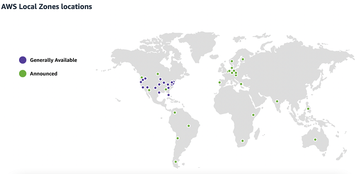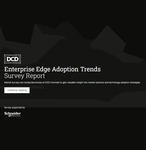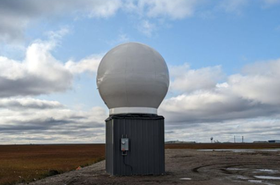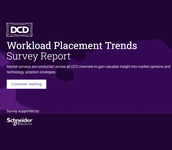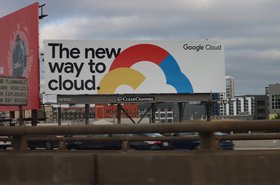AWS is to roll out its Local Zones globally next year, opening 30 locations in more than 20 countries.
Local Zones act as Edge locations to host applications that require low latency to end-users or on-premises installations. Each zone offers select services (compute, storage, database, etc.) within Local Zones close to population centers for latency-sensitive applications, usually where Amazon doesn't have an existing data center footprint. Each Zone is a ‘child’ of a particular parent region, and is managed by the control plane in that region.
“We will be launching over 30 new AWS Local Zones in major cities around the world,” the company said. “These new AWS Local Zones will be made available starting in 2022 in over 21 countries... and join 16 Local Zones across the US, helping you to serve end-users around the world with even lower latency.”
AWS hasn’t detailed which cities will be served but has promised Zones in the following countries: Argentina, Australia, Austria, Belgium, Brazil, Canada, Chile, Colombia, Czech Republic, Denmark, Finland, Germany, Greece, India, Kenya, Netherlands, Norway, Philippines, Poland, Portugal, and South Africa.
“I’m very excited to announce that we will be expanding the local zones internationally across the world in Europe, South America, Africa, Asia and Australia,” Amazon CTO Werner Vogels said during the re:Invent conference this week. “And of course we will have one in my home city of Amsterdam.”
First announced in 2019, Local Zones are now generally available in Boston, Chicago, Denver, Dallas, Houston, Kansas City, Los Angeles (x2), Miami, Minneapolis, and Philadelphia.
All but the two Los Angeles Zones launched into general availability this year; Amazon now has 14 Local Zones in 13 cities across the US. The company said it is working on opening three additional Local Zones in Atlanta, Phoenix, and Seattle by the end of the year.
Despite DCD previously requesting more information, the company hasn’t shared details about the facilities its Local Zone infrastructure sit within: they are presumably colocation data centers owned by third parties.
The company also operates Wavelength Zones, a service which provides compute and storage, sitting within telecom providers' 5G networks, also providing access to cloud services running in a nearby AWS Region.
Verizon is AWS’ Wavelength partner in the US, providing Zones in 13 US cities; Atlanta, Boston, Chicago, Dallas, Denver, Houston, Las Vegas, Miami, New York City Phoenix, San Francisco, Seattle, and Washington DC.
AWS has partnered with Vodafone to launch a Wavelength Zones service in London, UK. The service is also available in Tokyo and Osaka, Japan, through KDDI; and Daejeon, South Korea, through SK Telecom.

